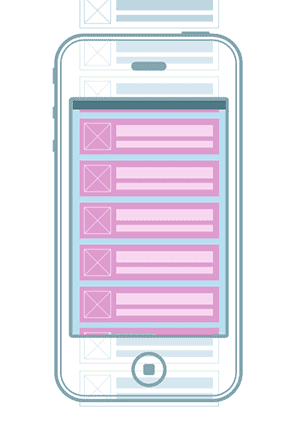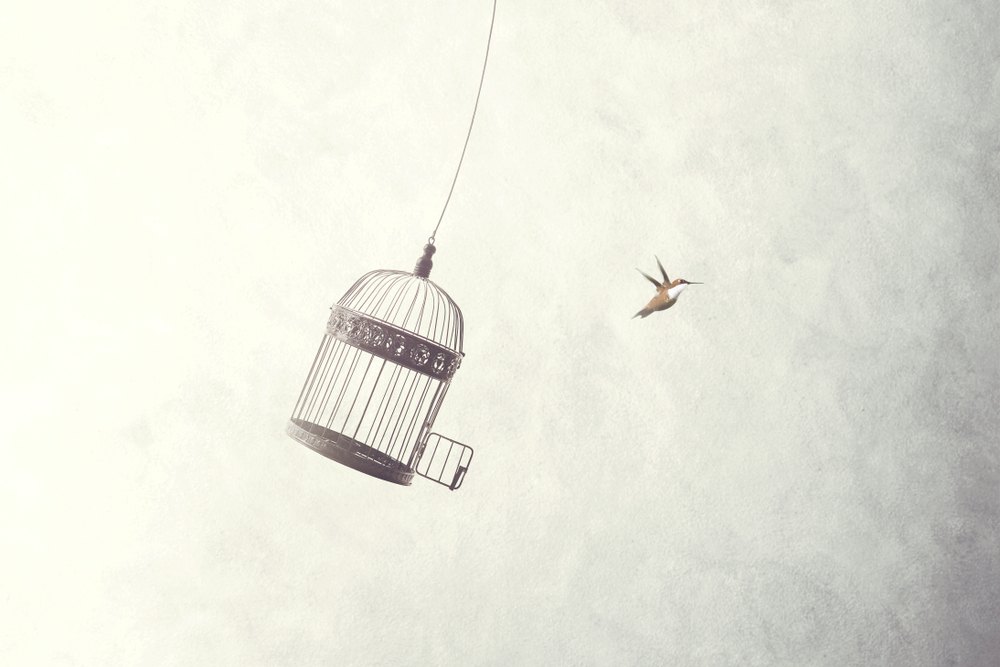"A life is nothing more or less than the sum of what fills the attentional bandwidth of the person living it" - Oliver Burkeman, The Thieves of Time [New Philosopher November 2018]
As consumers, we should all be aware of the attention economy. We should all be cognizant that thousands of companies vying for us to notice them on a daily basis. And we should all understand what falling victim to it could mean for us.
As marketers, we have a duty to understand the potential consequences of our day-to-day activities, and to capture attention in the attention economy ethically.
What is the attention economy?
The attention economy has been a fact of life for decades - even centuries, in some form. But it has become an entirely new kind of beast over the last few decades as a consequence of the digitisation of our lives - a consequence which probably started out as an unintended one.
But now there is a great deal of intention driving the attention economy. Addictive content belies a fearsome battle between businesses, particularly large corporations, all vying for the scarcest and most valuable of resources: our attention.
In recent years, the battle for our valuable attention has intensified furiously. Technology has allowed corporations to devise remarkably efficient ways to capture information about us and our habits and tailor our digital lives to enhance the possibility that we might give them our money, or something they can make money out of.
A simple LinkedIn search for current Facebook employees with the job title "Product Designer" alone yields 1,855 results. Their job? Glue your eyes to Facebook. Keep you scrolling. Get you clicking. Keep you away from Twitter. Pinterest. Snapchat.

For better or for worse, most of us now live our lives with our eyes in front of a digital screen. How would we be different if we checked our phones for 5 minutes, 5 times a day instead of 50 or 100? The digital world largely influences the definition of who we are, our relationships, our political and philosophical beliefs, our aspirations and our fears. Yet we scarcely ever think about it.
The powers behind our screens are all but invisible in our day to day lives. But their creations are right in front of our noses.
The damage the attention economy can do
Technology is designed to be addictive. The longer we spend using it, the more likely we are to line corporations' pockets with our hard-earned money.
But the damage can run deeper.
Technology contributes to what is known as continuous partial attention. When we allow ourselves to be bombarded from all sides with information, it leads to us skimming over the details of that information and failing to internalise it, or identify the important points. It limits our ability to focus, and some have even claimed it can lower our IQ. We have less time and patience to reflect and contemplate, leading to even greater stress and poorer decision-making, which in turn make us less able to achieve our goals and ultimately makes us less happy.
It's well known that being parted from our mobile phones causes stress. Real, measurable stress. Blood pressure rises, heart rate rises. Yet it's been shown, too, that when we receive notifications on our phones, we suffer the very same effects until we can check our notifications. Ofcom estimated in 2018 that, on average, we checked our phones on average every 12 minutes in the UK.

Yet in the corporations' missions to lock out their competitors, they also try to part us - psychologically at least - from some of the most important aspects of our humanity. 1 hour on our phones is an hour we aren't spending with our families and friends. It's an hour we're not spending exercising, looking after our very bodies.
When it goes wrong, the attention economy - the sum of the effort of millions of marketers, engineers, designers from around the world - can be evil.
But it can also do good
Some people will say that if you decide to click or buy something you see online, that's because you wanted to click or buy it. It is in your interest - that is what you wanted at that time.
It's not strictly true, since what you want is not always what is in your interest. But it is certainly true that we can find out about genuinely useful products and services online, which have the potential to enrich our lives, as consumers.
If I'm browsing through Instagram and see an advert for nail varnish, I'm not likely to be engaged because I don't wear nail varnish. It would be a waste of my time - a waste of my attention. If I see an advert for canvas shoes, I'd be more likely to find it relevant because I like wearing canvas shoes - in fact, I like wearing them so much that I often wear them out and want to buy new ones. Often enough to make their ad spend worth it, I will buy them.
Meanwhile, as a marketer fulfilling the potential of your brand and profitability is all but impossible without the help from advertising and social media.
There's a fine line to be struck between being present in the race, and causing harm. It is up to us to acknowledge that line, and to strike the balance.
Some ideas for capturing attention without doing harm
What does this mean for us, the people working for businesses who want to reach their audience without becoming a part of the problem?
1. We must resist the temptation to create content which encourages behaviour which is inherently addictive.
In all good conscience, an ethical marketer should, where possible, avoid creating anything that exists to addict. The greatest and most damaging example of this is "pseudo-rewards" - likes, favourites, shares. We should all be concerned about the habit-forming nature of modern social media platforms, which rely on those little bursts of dopamine released in our brains that occur when content is interacted with. Of course, it follows that we mustn't create addictive, damaging digital experiences ourselves, or share them.
2. Know who your audience is, and what they want.
Without knowing what your audience needs from you, you can't consistently provide genuinely valuable, useful content or genuinely valuable, useful products. You'll be wasting their time. You want to be able to solve a real problem that the people in your audience have.
3. Create content that you believe your target audience will genuinely find useful - and then get it in front of those people.
What are you providing? Ask yourself who your target audience is, and ask yourself if they will genuinely find it useful. If not, it will become just another five seconds your content is taking away from somebody. But there's more than that. Targeting is sometimes not thought of in a positive light - but if you don't target accurately, the wrong people will receive your content and you will take their time away from them. On the other hand, we must think carefully about whether our targeting might be considered discriminatory - that won't do, either.
4. Create less content. Create better content.
Our first intuition is often to create more. But that is often not the right way. Listen to your audience - what do they want? Rather than investing three hours creating filler content, invest that time researching for a whitepaper to offer genuinely unique and specialist insights to your customers, or invest that time in building a supportive community, or organising an in-person event to share. There is a fine line between providing value and spamming people, and it is hard as a marketer to strike this. Be mindful never to stray beyond the line.
5. Go above and beyond.
Meeting your customers' expectations satisfies them, but it doesn't make them remember you, come back to you and share your products and solutions with their friends, family and colleagues. Aim to delight with every interaction, and far fewer people will have felt that you have wasted their time or money. Rather, your product or service will have genuinely enriched their lives, and hopefully will go on to enrich many more peoples' lives.
6. Keep evaluating.
Is your product or solution still conforming to its original purpose? Is it still doing the intended good? Is it doing unintended harm? Know who in your organisation you can speak to when you feel things aren't quite on track and that original "good" is getting obscured, someone who will take a stand.

If you're a marketer, it's very probable indeed that you are also a consumer. We know what it feels like to be a consumer, and it is prudent to remain aware of the attention economy and resist the temptation to allow it to damage us. When we step into our marketing shoes, we need to remember that the people receiving our message our just like us - lives which, as Burkeman said, are the sum of what fills their attentional bandwidth.
What else can we do to capture attention in the attention economy ethically? Let me know on Twitter!



